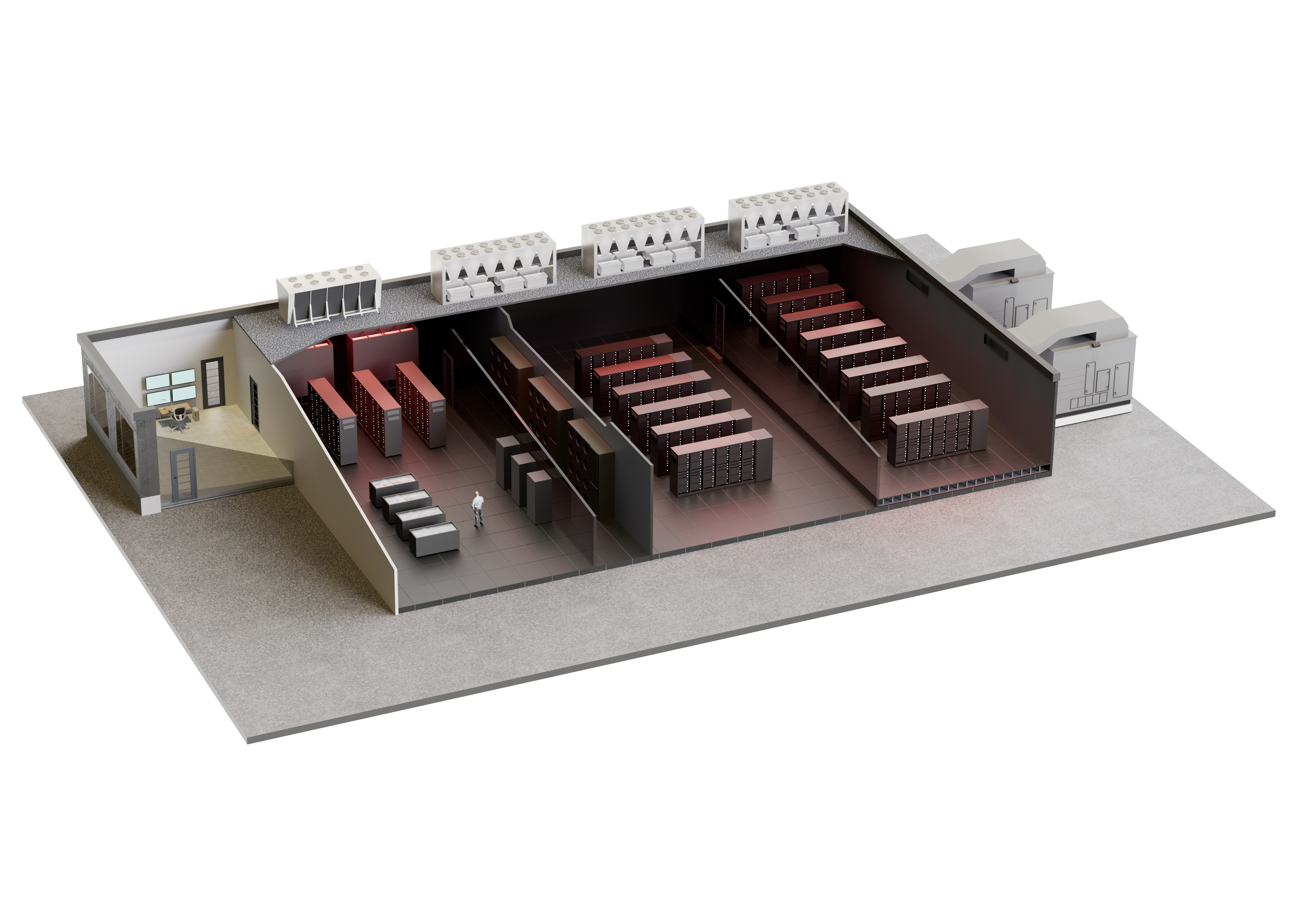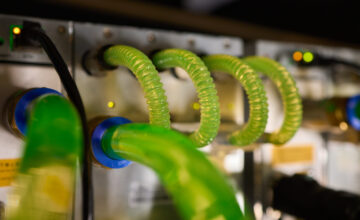As the demands on data centers continue to escalate, the temperatures within these facilities have reached unprecedented levels. To address this challenge, liquid immersion cooling systems have emerged as a cutting-edge solution.
Through our investment in TMGcore, an award-winning provider of single- and two-phase liquid immersion cooling technology, we can offer solutions for the next generation of high-performance computing technology.

What does “Single-Phase” and “Two-Phase” mean?
The terms “single-phase” and “two-phase” in the context of immersion cooling gain their respective names as a result of what happens to the cooling liquid throughout the immersion cooling cycle.
In single-phase immersion cooling systems, servers are vertically installed in a coolant bath containing circulating hydrocarbon dielectric fluid, similar to mineral oil. The fluid makes direct contact with the server components, facilitating effective heat transfer. It remains in a liquid state and is cooled in a Cooling Distribution Unit (CDU) through a heat exchanger. The heated coolant exits the rack via the top, passes through the heat exchanger, and returns with the help of a coolant pump in the CDU.
Two-phase immersion cooling systems follow a similar process but involve servers sealed in an engineered fluorocarbon-based liquid. Unlike single-phase systems, this fluid can undergo boiling even before reaching 50°C. The heat generated by the servers causes the surrounding fluid to boil, changing its state from liquid to gas. The resulting vapor is then condensed back into a liquid by water-cooled condenser coils located at the top of racks. Once the vapor has transformed into a chilled liquid, it re-enters the cycle, where the heat generated by the servers will turn it back into vapor once again.
As liquid immersion cooling systems gain popularity in data centers and other large-scale operations, there are still misconceptions circulating about them.
Articles
Understanding Coolant Distribution Units (CDUs) for Liquid Cooling Efficiency
Learn more about CDUs and how integrating our CDU into your liquid cooling strategy ensures the best thermal management and a solution that adapts to the future of high-density computing.








